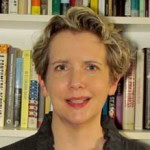At the annual Committee on Women Historians (CWH) mentoring breakfast (co-sponsored by the Coordinating Council for Women in History), speaker Atina Grossmann (Cooper Union) discussed having an article rejected for being “too emotional.” The article, about restitution of property in postwar German Jewish history, was based on a paper given at a conference on the history of emotions. It drew on her family archives to reflect on the refugee experience, and on feelings of loss and dislocation. What line had she crossed in attempting to combine scholarship and family memoir? How gendered are the categories of the scholarly and the emotional, and in what ways do these questions return us to questions of methodology and epistemology in women’s history? She observed that the ways in which historians work as well as how our work is received are gendered. Much like president William Cronon, in his presidential address on “Storytelling,” Grossmann called for expanding the patrolled borders of legitimate historical research and an acceptable voice for a historical scholar. As an audience member noted during the discussion, these borders can be less permeable for women. Nevertheless, Grossmann called on her audience to insist on queering and melding the political and personal, personal and academic, and the academic and political.
Noting the recent death of Gerda Lerner, one of the founding mothers of women’s history, Grossmann also reflected on the challenges that face women historians today. While in some ways we have come far since the CWH was organized in the 1970s, in other ways the lives of academic historians have become much more challenging. The crisis in higher education pushes all faculty to work harder with fewer resources and fewer full-time colleagues. Grossmann’s impression from anecdotal conversations was that younger women are feeling these pressures particularly strongly, pressed by pulls of work, family, and activism. While today there may be more recognition of the need to adapt the workplace to meet the challenges of raising children, an older generation of scholars faces challenges of aging and disability in an academic workplace that does not leave room for imperfection.
Immediately following the breakfast, CWH committee chair Leora Auslander (Univ. of Chicago) facilitated a brainstorming session on the future mission of the committee. She noted that the session had two goals, of providing a place to talk and soliciting suggestions of concrete actions the committee could take.
On Thursday evening, January 3, nearly 100 graduate students turned out for a reception for graduate students sponsored by Bloomberg View and hosted by the AHA Graduate and Early Career Committee. The conversation was lively, and participants were excited when immediate past president Anthony Grafton helped distribute the door prizes, signed copies of books by the four sitting AHA presidents and AHA deputy director Robert Townsend.
Approximately 20 historians attended the annual Committee on Minority Historians mentoring breakfast on Friday morning. Alexander Byrd (Rice Univ.), Monica Green (Arizona State Univ.), and Yovanna Pineda (Univ. of Central Florida) helped kick off the conversation by sharing their experiences as historians of color, and the lessons they had learned that might be valuable to younger scholars forging their careers.
The annual GECC open forum for graduate students, scheduled on Saturday to allow participants to reflect on the Malleable PhD workshop, drew a smaller audience. Nevertheless, there was a lively conversation about the avenues of employment available to history PhDs both inside and outside the academy.



